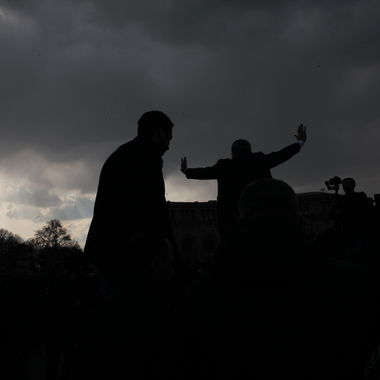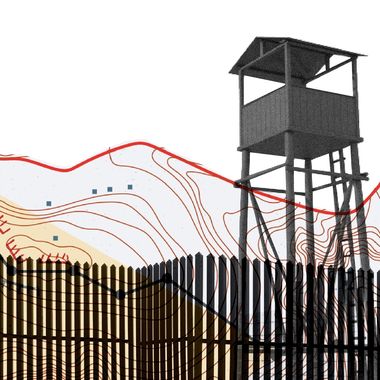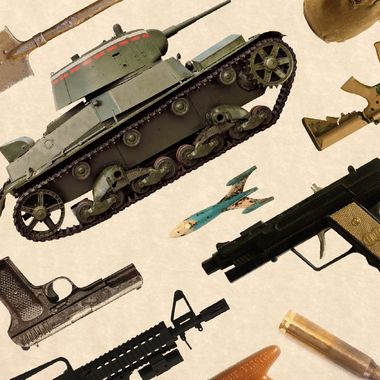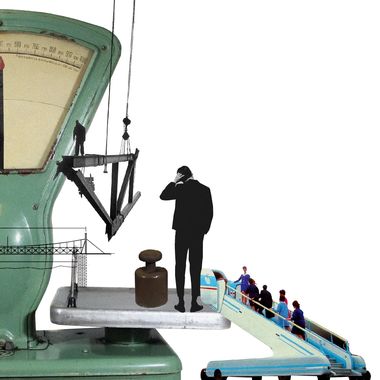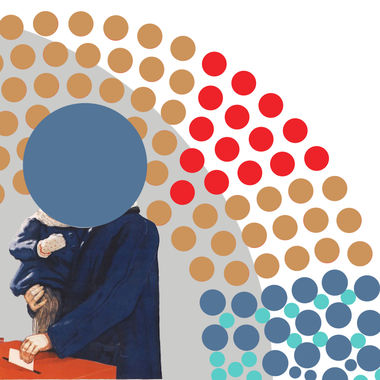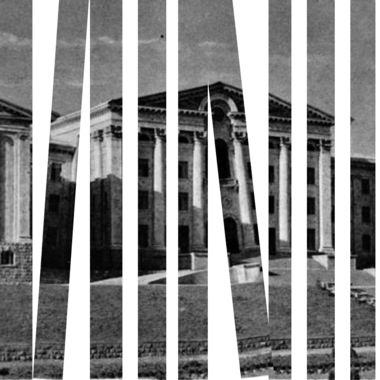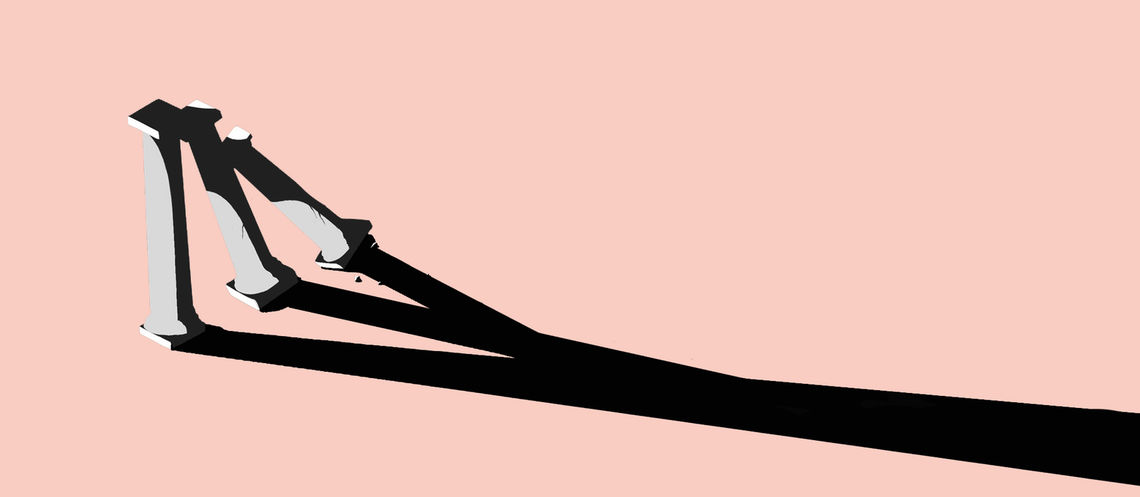
The normalization of failure has become an axiomatic phenomenon in the institutional and bureaucratic behavior of Armenia’s state system. Failure, however, achieves such normalization due to one singular phenomenon: the absence of accountability. For 30 years, the concept of accountability has been a subject of collective mockery, one which the corrupt elite laughed at, the pseudo-criminal elements took pride in avoiding, and the country’s state infrastructure abused in its selective enforcement. Accountability was for suckers: only idiots get caught or cannot find a way to bribe and cheat their way out. In essence, escaping accountability for failure became ingrained in Armenia’s socio-political culture.
This culture, however, underwent a severe shock after the Velvet Revolution, which promised to take the “plunderers” to court and collect restitution. Society would no longer turn a blind eye. On the contrary, citizens were encouraged to demand transparency and answers. Then, the 2020 Artsakh War happened, and upon the dire consequences of this war, the citizenry did what it was conditioned to do: demand answers and accountability. But a more complex issue now presents itself: the operational and strategic failures of the war fall within the realm of the military elite, while the political and diplomatic failures lie with the civilian government. The latter has conceded its faults, accepted a degree of responsibility, made personnel changes and displayed an open willingness to be held accountable to the Armenian people. The former, however, having been cultivated in a culture of impunity, finds itself terrified that its failures can no longer be swept under the rug. To Armenia’s military brass, accountability remains an alien concept; they feel the myth of the military’s sacredness exempts them from accountability. But the failures of the 2020 Artsakh War supersede any and all such assumptions. And therein lies the basis of the most recent political crisis in Armenia, as Armenia’s top military brass has called for the resignation of Prime Minister Nikol Pashinyan, asserting in a public statement that the military leadership has lost confidence in the current Government’s ability to serve the interests of the country.
The prevailing logic, however, is quite confounding, and does necessitate an honest reckoning. Yes, it is self-evident that Armenia lost this war under the tenure of the Pashinyan Government. Indeed, it is indisputable that Pashinyan is a defeated Prime Minister. But we cannot deny the most obvious that also confounds us: the generals that lost the war. Paradoxically, the defeated generals are demanding the resignation of the defeated Prime Minister. Irony is not a friend to accountability.
The problem at hand, however, is not simply political; the political, itself, is actually not the problem. The more concerning matter at hand remains two-fold: 1) the flagrant violation of the civilian-military doctrine; and 2) the direct violation of the Constitution of the Republic of Armenia. In this context, the Chief of General Staff’s demand for the Prime MInister’s resignation is not a political act, or the right of military personnel to express their political opinions. Rather, per Armenia’s Constitution, it is an egregious act that contradicts the very oath that these military personnel took to protect. Further, it is not the military that is demanding the Prime Minister’s resignation, for an institution does not have the legal or conceptual standing to engage in such an act. Rather, it is a collection of individual members of the military elite that are making such demands. For this reason, not only are the institutional norms of the Armenian Armed Forces being violated by its very leadership, but this leadership is also violating the country’s Constitution.
The civilian-military doctrine stipulates civilian control over the military, where the proper “subordination of a competent, professional military” is utilized to serve the “ends of policy as determined by civilian authority.”[1] As the large body of research on the subject matter has confirmed, civilian control of the military is a prerequisite and necessary feature of any stable democracy. This normative standard has been inherent to the institutionalization and professionalization of the Armenian Armed Forces, and has served as a bulwark against the utilization of the military against the people, as so horrifically displayed in the March 1 events of 2008. The violation of the civilian-military doctrine, to this end, is hinged on two factors: the utilization of the military for domestic policing, and the politicization of the military, where the military inserts itself into political matters. Similar to the doctrine of separation of church and state, the civilian-military doctrine presupposes that any extralegal intervention of the military into political matters undermines the institutional arrangements and democratic ethos of the socio-political system. Consistent with such assumptions, Armenia has utilized a process known as “subjective control,” which involves the structuring of legal, constitutional, and institutional restrictions on the military’s autonomy. To this end, Armenia’s military operates and functions as an extension of the country’s democratically-elected civilian leadership.
The recent demand by the Army’s General Staff for the resignation of the Prime Minister is an unequivocal violation of the civilian-military doctrine that has served as an institutional and normative standard within Armenia’s state system. The politicization of the Army by the military elite not only undermines the professionalism and institutional integrity of Armenia’s state structure, but also seeks to establish a highly dangerous precedent. The lack of foresight by the current Chief of General Staff with respect to this issue of precedent remains quite worrying. If this violation of the civilian-military doctrine is normalized, what is to stop future military leaders from demanding and forcing the resignation of democratically-elected leaders? All Armenian society needs to do is look west to Turkey, who has undergone military coups in 1960, 1971, 1980, 1997 and an attempted one in 2016. The reigning problem at hand, therefore, is not simply about Nikol Pashinyan or the current government, but rather, the military elites disregard for a fundamental pillar of democracy and the enormous danger that such a precedent will set for the future stability and health of Armenia.
A more dire problem that has been set forth by the General Staff’s intervention into the political realm is the inherent illegality of the act. In no uncertain terms, it is a violation of the Constitution of the Republic of Armenia for the military brass to insert, interject or involve itself into the political affairs and processes of the country. Article 14, Section 2 of the Armenian Constitution specifically states, “The armed forces of the Republic of Armenia shall maintain neutrality in political matters and shall be under civilian control.” The Chief of General Staff’s demand for the resignation of the democratically and legitimately-elected Prime Minister of the country is both an egregious and direct violation of the “neutrality” doctrine as specified in Article 14, Section 2. There exists no legal precedent or a statutory norm that can legally or constitutionally justify this recent behavior.
Aside from violating the civilian-military doctrine, as well as the Constitution’s neutrality doctrine, the demand by the military elite for the resignation of the Prime Minister, who is also the Commander-in-Chief of the Armed Forces during wartime, is both an act of insubordination as well as a violation of Article 155 of the Constitution. Section 1 of Article 155 stipulates that the “armed forces shall fall under the subordination of Government,” a stipulation that not only reifies the civilian-military doctrine, but also legally and constitutionally confirms the subordination of the military brass to the elected-civilian leadership. To this end, the Chief of General Staff’s demand for its Commander-in-Chief’s resignation is a two-fold violation of the insubordination clause. Further, there also remains another possible constitutional violation by the military brass with respect to Section 3 of Article 155, which states that, in “a non-war situation, the Chief of General Staff shall be subordinate to the Minister of Defense.” Considering the November 10 ceasefire and the cessation of active hostilities, if the current state of affairs qualifies as a “non-war situation,” the Chief of General Staff’s actions also raise concerns of insubordination to the Minister of Defense by virtue of violating the constitutional chain of command.
Within the realm of political discourse, it is beyond and outside the purview of the military to demand accountability from the Prime MInister, for such a demand is only reserved to the people. The military has neither the institutional authority nor the sanctioned right to make political demands or request political outcomes. Such, also, is only reserved for the people. Further compounding the problem is the utter disregard for the will of the Armenian people. The Prime Minister did not assume his position in a vacuum or through political power-sharing: his position is an unequivocal representation of the will of the Armenian people in the December 2018 election. In this context, the issue, at the conceptual level, is not and cannot be Nikol Pashinyan, but rather, the institution of the Prime MInister. And when this institution is represented by someone who is installed through the choice and will of the Armenian people, demanding the removal of this representative is a direct assault against the people’s legitimate choice.
Commensurate with this discourse is an underlying question that must be posed: when hundreds of thousands of Armenian citizens in 2018 took to the streets and demanded the resignation of then-Prime Minister Sargsyan, why didn’t the military brass join the people in demanding the resignation of the Prime Minister? Considering the rationale provided by the Chief of the General Staff for its demand of the current Prime Minister’s resignation, this same rationale could easily have applied to Prime Minister Sargsyan in 2018. Should the military brass be criticized for this? Absolutely not! While the political crisis in 2021 can in no way be compared to the massive uprising in 2018, there still would not have existed an acceptable justification for the military to demand Prime Minister Sargsyan’s resignation, for that would have been both a doctrinal and constitutional violation. Moreso, the military went out of its way to confirm this, and when several conscripts broke out of their barracks and joined the protests, the military correctly punished these soldiers. Or in the case of the consequences following the loss of territories in the 2016 April War, then-President Sargsyan removed the defense minister along with several other top ranking generals, while at the same time conceding that there were problems of corruption and underperformance in the armed forces. Thus, these two quick examples simply demonstrate that whether in the case of mass public uprisings, or in the case of matters directly relating to the Army itself, the military refrained from violating its institutional norms. In this context, the Armenian Armed Forces actually do have a precedent for not interfering in politics during crises and going out of its way to preserve and respect the civilian-military doctrine as well as Articles 14 and 155 of the Constitution. Within this framework, the recent actions of the Chief of the General Staff stands out as being an even more egregious act of unprecedented illegality.
Compounding an existing political crisis with an additional set of new crises cannot, in any fashion or form, address the immense problems facing the country. The era of impunity is long over, and Armenian society can no longer whitewash or normalize the failures of either its political or military leadership. In this post-war era, Armenia can have only one mantra, and that is accountability. One defeated group of actors cannot abdicate their role or responsibility in failure by pointing the finger at another defeated actor. The military elite is not demanding the resignation of Prime Minister Pashinyan for issues of competence or performance; it is demanding the resignation of the Prime Minister because the latter crossed a line and stuck his nose into the inner circles of the military elite by firing Deputy Chief of Staff Tiran Khachatryan. The legality of the Prime Minister’s act is not under question. But the issue is rather deeper: the military elite, as an insulated clique of authoritarian reserves, will not tolerate any infringements or reforms from the civilian leadership.
This, however, will no longer work. Armenian society demands and needs answers for the failures of the 2020 Artsakh War, it needs answers for the deaths of thousands of soldiers, it needs answers for the strategic, tactical and logistical failures that are blatantly obvious to all, and it needs answers for the dereliction of duty and willful negligence of its military leaders. If Armenia is to rebuild and blaze forward, it needs to confront the paradox of its failures and embrace the struggle for accountability.
---------------------------------
[1] Peter D. Feaver. 1996. "The Civil-Military Problematique: Huntington, Janowitz and the Question of Civilian Control." Armed Forces & Society. 23(2): 149-178.
also read
Military Brass Calls for Prime Minister’s Resignation, Pashinyan Promises to “End the Velvet”
Armenia’s top military brass called for Prime Minister Nikol Pashinyan’s resignation on Thursday. Pashinyan considered it to be an attempt at a military coup and said that the era of leniency is over. A recap of the deepening political tensions in the country.
Armenia’s New Security Architecture: Russia as Geopolitical Bodyguard
By Nerses Kopalyan
Armenia needs to reconfigure the political economy of its security architecture by utilizing its security alliance with Russia, through a mechanism of burden-sharing, where Russia’s geopolitical interests are aligned with Armenia’s security interests.
Arms Supplies to Armenia and Azerbaijan
By Hovhannes Nazaretyan
For nearly three decades, Armenia and Azerbaijan have been buying large quantities of weapons from a number of countries. Hovhannes Nazaretyan presents a comprehensive list of weapons acquired by both countries since independence.
Bayraktars Over Artsakh
By Hovhannes Nazaretyan
Armenia’s air defense systems were largely ineffective against the onslaught of combat and reconnaissance UAVs used by the Azerbaijani military. The single most important UAV used in the 2020 Artsakh War was the Turkish-made Bayraktar TB2.
Can Trade Prevent War?
By Artin DerSimonian
Given the growing sense of global multipolarity and the apparent twilight years of the American-anchored liberal international order, Armenia cannot solely rely on friends and allies around the globe to ensure its survival. A more realistic approach is necessary.
A History of Armenian Political Party Splits and Alliances
By Harout Manougian
Harout Manougian presents a comprehensive overview of the different alliances and government coalitions in parliamentary elections since Armenia’s independence in 1991.
Early Elections Are Unlikely But Here Is What They Could Look Like
By Harout Manougian
Following Armenia’s major military defeat in Artsakh, many people in the country, including a number of political forces, are calling for the resignation of Prime Minister Nikol Pashinyan. Such a move could trigger a number of different scenarios.
Comments
Sevak Sohrabian
5/25/2021, 4:29:33 AMBrilliant!


